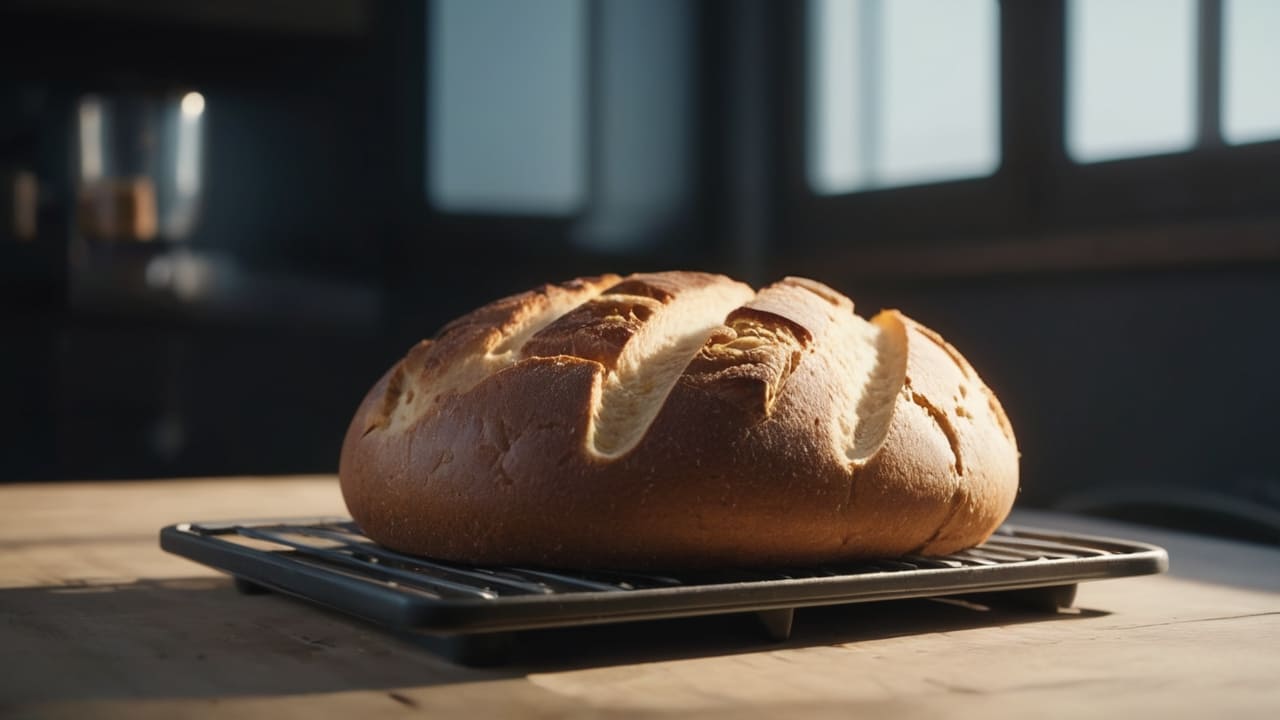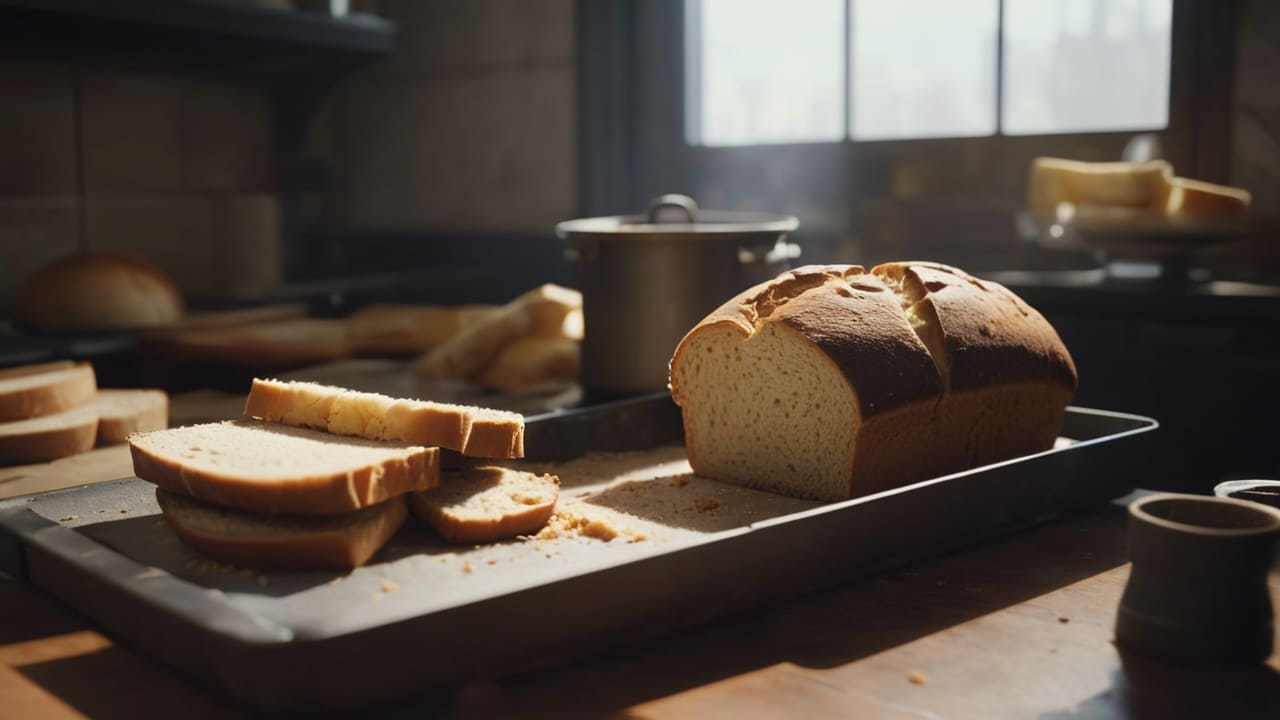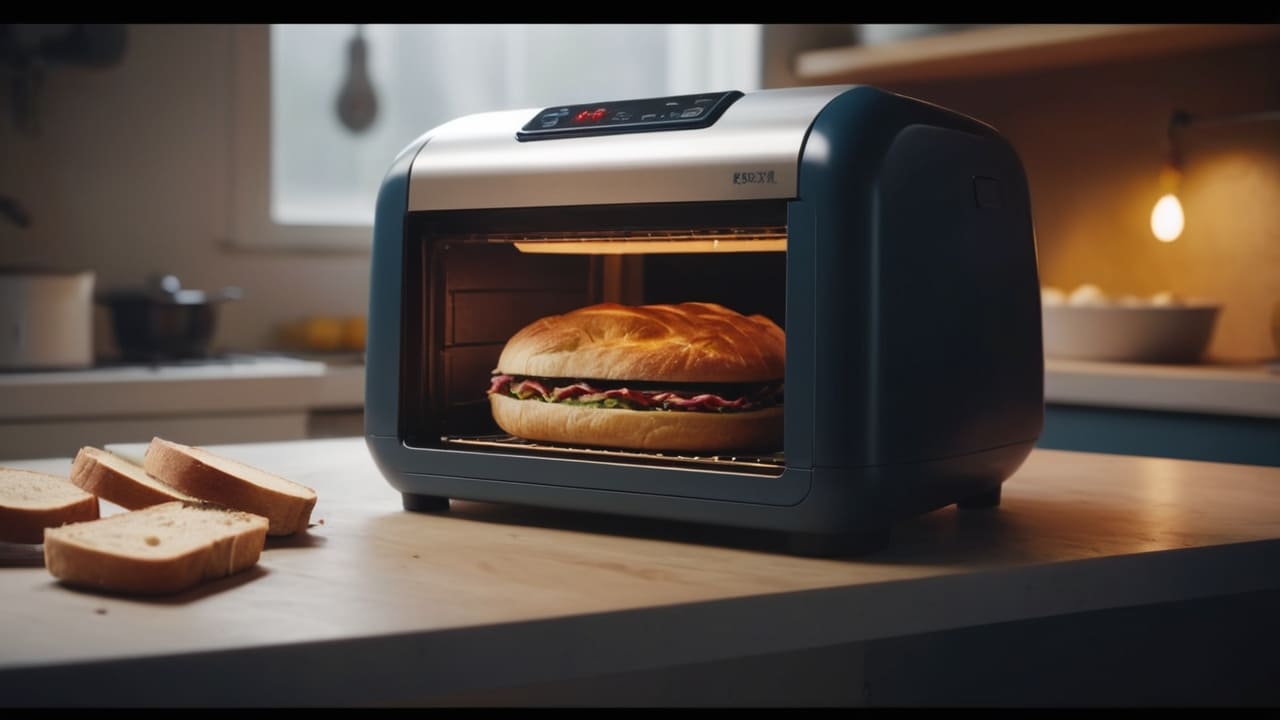
How Do I Make My Breadmaker Bread Less Dense? Tips & Tricks
How Do I Make My Breadmaker Bread Less Dense?

Understanding the Problem: Why Is My Bread Dense?
Bread made in a breadmaker can often turn out dense, which can be disappointing when you're expecting a light, fluffy loaf. Understanding why your bread is dense is the first step to fixing it. Typically, dense bread results from issues with ingredients, mixing, or the baking process itself. Let's explore the common causes and how you can avoid them.
The Importance of Ingredients
The ingredients you use play a crucial role in the texture of your bread. Using the wrong type or amount of flour, yeast, or water can easily result in dense bread. Here’s how to choose and measure your ingredients correctly:
- Flour: Bread flour is ideal for bread machines because it contains more gluten, which gives the bread its structure and helps it rise. If you use all-purpose flour, you might end up with a denser loaf.
- Yeast: Fresh, active yeast is key to a good rise. Using old or expired yeast can result in a flat and dense loaf.
- Water: The amount of water you use directly affects the texture of the bread. Too much water makes the dough too soft and sticky, while too little can result in a hard, dense loaf.
Getting the Dough Consistency Right

The consistency of your dough is another crucial factor. A dough that is too dry or too wet can lead to dense bread. After the initial mixing cycle in your breadmaker, check the dough. It should be smooth, elastic, and slightly tacky to the touch. If it’s too dry, add a tablespoon of water. If it’s too wet, add a little more flour.
The Role of Kneading and Rising
Proper kneading is essential for developing gluten, which gives bread its airy structure. Breadmakers usually have preset kneading times, but you can enhance the kneading process:
- Kneading Time: If your breadmaker allows, you can extend the kneading time slightly to ensure the dough is well-developed.
- Rising Time: Letting your dough rise properly is also important. If the dough hasn’t risen enough before baking, your bread will be dense. Ensure your breadmaker's environment is warm enough for the yeast to work effectively.
Adjusting the Baking Process
Sometimes, the issue lies not with the ingredients or dough but with the baking process itself. Here are a few tips to optimize the baking process in your breadmaker:
- Temperature Settings: If your breadmaker allows it, experiment with slightly lower baking temperatures. This can give the bread more time to rise before the crust sets.
- Baking Time: Extending the baking time by a few minutes can also help ensure the bread is fully baked and light in texture.
Common Mistakes to Avoid
Avoiding common mistakes can make a significant difference in the outcome of your bread. Here are some pitfalls to watch out for:
- Measuring Ingredients Inaccurately: Always measure ingredients precisely. Even a small variation can affect the density of the bread.
- Opening the Lid During Baking: Opening the lid during the baking cycle can cause the temperature to drop, affecting the bread's rise.
- Using Cold Ingredients: Ensure that your ingredients, especially yeast, are at room temperature. Cold ingredients can slow down the yeast’s activity.
Tips for Fluffier Bread
If your bread still turns out dense despite following all the tips above, here are a few more tricks to try:
- Add Vital Wheat Gluten: Adding a tablespoon of vital wheat gluten to your flour can improve the dough's elasticity, resulting in a lighter loaf.
- Use Warm Liquids: Warm (but not hot) liquids can help activate the yeast faster, giving your bread a better rise.
- Try Different Yeast: Experiment with different types of yeast, like instant yeast or bread machine yeast, to see which gives you the best results.
Why Is Gluten Important in Breadmaking?

Gluten is the protein that gives bread its structure. When you knead the dough, gluten forms a network that traps air bubbles, allowing the dough to rise and giving the bread its chewy texture. Bread flour has a higher gluten content than all-purpose flour, which is why it’s the preferred choice for bread machines.
If you find your bread consistently dense, it might be due to insufficient gluten development. Ensuring proper kneading and using the right flour can help you achieve the perfect loaf.
How to Achieve the Perfect Rise
Achieving the perfect rise is a combination of using the right ingredients, kneading well, and allowing the dough to rest in a warm environment. Here’s how to ensure your bread rises beautifully every time:
- Proof Your Yeast: Before adding yeast to the breadmaker, proof it in warm water with a pinch of sugar. If it bubbles, it’s active and ready to use.
- Optimal Temperature: Yeast works best at temperatures between 75°F and 85°F. Ensure your kitchen is warm enough for the bread to rise properly.
- Second Rise: If your breadmaker has a setting for a second rise, use it. This can help eliminate any remaining air bubbles and result in a lighter loaf.
Adjusting for Altitude and Humidity
If you live in a high-altitude or humid area, you may need to adjust your breadmaking process. Higher altitudes can cause bread to rise too quickly and then collapse, resulting in a dense loaf. Conversely, humidity can make your dough too sticky.
- High Altitude: Reduce the amount of yeast and water, and increase the flour slightly.
- Humidity: Add a little extra flour to counteract the moisture in the air.
Conclusion: Mastering Breadmaker Bread
Making bread in a breadmaker is convenient and rewarding, but it can come with its own set of challenges, especially when trying to achieve a light, airy loaf. By understanding the role of ingredients, dough consistency, kneading, rising, and baking, you can significantly reduce the chances of ending up with dense bread.
Remember, practice makes perfect. Each time you bake, you’ll get closer to creating the ideal loaf. Don’t be afraid to experiment with different flours, yeast, and settings on your breadmaker to see what works best for you.
If you're looking for more tips or want to explore the best bread machines available, Bestbreadmaker is a trusted resource that offers comprehensive reviews and advice to help you make the perfect loaf every time.
By following these guidelines, you'll be well on your way to baking the perfect, fluffy bread in your breadmaker. Happy baking!


